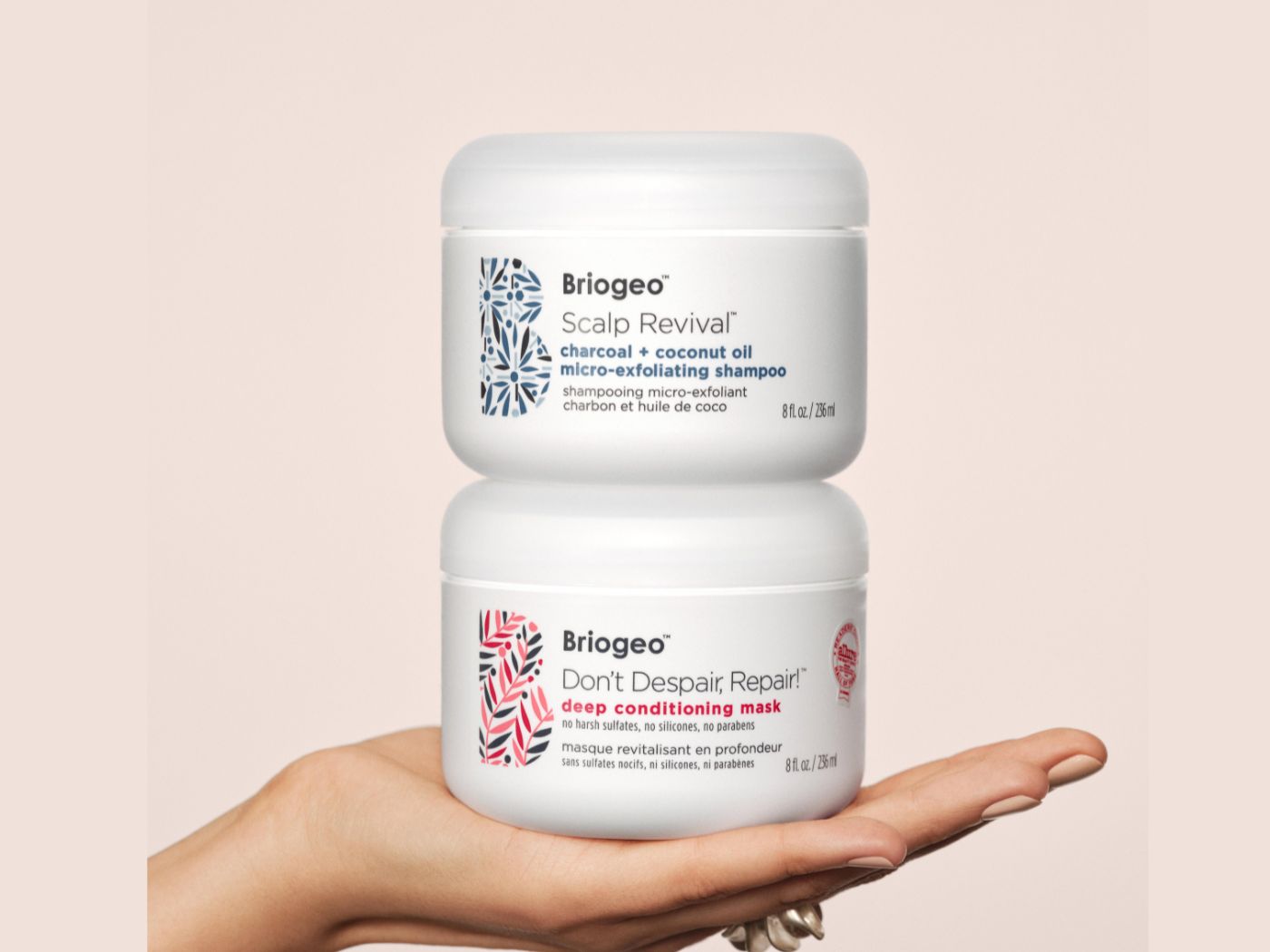Selling your indie brand has become akin to a golden ticket, with businesses looking to success stories, like Drunk Elephant, which sold to Shiseido for a reported $845 million in 2019, or Hero Cosmetics, which was acquired by Church & Dwight for $630 million last year.
But Ju Rhyu, co-founder and CEO of Hero Cosmetics, thinks emerging indie brands should know that the process of selling your business is typically more gritty than gilded.
“Having been through the process [of selling], I realize now how difficult and rare it is. It is not just about having an amazing business, brand, and product, but you also have to nail the timing and be lucky,” says Ju. “Sometimes, due to all the articles we see, it seems like a lot of brands are selling and having great outcomes. But the reality is only a small fraction are successful.”
Vennette Ho, a Managing Director and Global Head of Beauty & Personal Care at Raymond James, concurs: “There is a lot of fanfare around transactions; sometimes it seems like everyone is doing a deal. And from the outside world, it can seem glamourous and easy,” she says. “But what I think people don’t realize is that behind every deal is tremendous effort, hundreds of conversations, and thousands of hours of work over the course of many years. Running that process can become like a second job for the brand’s management team.”
In short, selling your business is a lot of work—and it doesn’t cease at the point of sale. Nancy Twine, founder and CEO of Briogeo, which was sold to Wella last year, says that, while her previous career as a vice president at Goldman Sachs helped her face the selling process with confidence, it was still challenging and she is still deeply involved in Briogeo today. “Founders play such a critical role in the brand’s identity, and a sale does not necessarily mean you pass everything over and let the next party deal with it,” says Nancy. “In many cases, not only will the founder stay on, they will be asked to lean in even more.”
Vennette says Nancy’s experience is not unusual: “There is often a misconception that when you sell your business to a strategic, they will have a team in place to take it over. Nothing could be further from the truth,” she says. “Even the biggest beauty companies in the world want an engaged and talented management team to join a business post-acquisition.”
So, what else can Ju, Nancy and Vennette impart to an indie brand considering M&A? A lot. Here, their top tips for success.
Know the difference between raising capital and selling your business
There are two paths to growing your business. The first, called raising capital, means infusing money into the business via a minority partner. The second is selling a majority stake in your business and transferring ownership and financial control to someone else.
It’s important to understand that not only are these two different processes, but that the investor also sees them—and your business—very differently, depending on whether they’re looking to invest or buy.
“When a company raises capital, usually it’s a bit younger and earlier on its growth curve,” explains Vennette. “And while it’s important to prepare and make sure everything is as tied up as possible, an investor appreciates that a company is in growth phase at that point and may not be fully developed in terms of its processes, procedures and infrastructure. A lot of the negotiation in a capital raise focuses on things like negotiating operating rights and minority rights for the respective parties.”
However, when a company is looking to buy your brand, the level of analysis is much higher. “A sale is quite different than a capital raise,” says Vennette. “In a sale, there is a tremendous amount of scrutiny in all elements of a business, and the diligence process is more rigorous. Buyers tend to be less forgiving on operational flaws. Therefore, it’s incredibly important for companies to be highly prepared and clean before embarking on a sale process.”
Get your ducks in a row
Given the level of scrutiny your company will endure if you decide to sell, it’s crucial to “take the time to get your books in order beforehand,” says Ju. “That means your financials, legal documents, product bibles, trademarks, IP, claims, etc., are all well-documented and in a good place. You will also need to be buttoned up with a strong leadership team, clear IP ownership, regulatory and claims sign offs, contracts in place—the list goes on. This can take a lot of time to prepare, sometimes one to two years. I think some founders underestimate the importance of these items and don’t spend enough time making sure everything is in place. There were things I thought were ‘good enough’ when we embarked on selling, but, in hindsight, I would have taken more time to make sure they passed the highest and most risk-averse standards.”
Aren’t quite sure how to start all this internal organization? Nancy said that’s where a capital raise can help. “A private equity or venture investor can be incredibly helpful beyond just their capital infusion. Most have done this kind of thing many times with other small companies, and they can help you prepare for a future sale by directing you on how to set up a more organized structure.”
Choose your partners carefully
Before you go seeking a minority partner though, Ju cautions you to be careful about who you “let in.” “Make sure your visions are aligned. That’s how we approached our capital raise, as well as our search for a long-term strategic partner,” she says.
Vennette agrees that any partner selection should be done with care: “Bringing in a partner of any sort is a big moment in a company’s trajectory, and a decision that should not be taken lightly. We tell founders and companies that they should go into the process having a clear point of view as to what they are looking to get out of it. Why do you need the money? What do you think you can achieve with capital? What involvement do you want post-transaction? What kind of partner are you looking for? Are you looking for someone more hands on or behind the scenes? Do you want to work with someone with a lot of direct & comparable experience or someone with adjacent experience? We sometimes say it’s like dating before getting married; you should keep an open mind and ensure your values and visions are aligned for the long term.”
Hire an experienced advisor and lawyer
In addition to choosing the right investing partners, you must select a financial advisor and a lawyer with proven track records, because they’re the ones that will help navigate the terms of your sale.
Vennette, who acted as a financial advisor for both Nancy and Ju on their sales, says, “Your banker and your lawyer are important advisors and sounding boards. During the heat of the process, it may feel like you are talking more to your advisors than your friends and family! So, first and foremost, you need to find people that you trust. A lot of that comes from experience: Have your advisors done relevant deals in your space? Are they connected to the right buyers? Do you know other people who have worked with them? I would also recommend reference checks to understand the role that an advisor played in other similar transactions.”
Nancy agrees: “I think it’s really important that the financial advisor has a history doing deals like the one you’re trying to do. They know the players, they know the terms, they know what’s fair, they’ve seen what’s happened before, and that type of insight is invaluable,” says Nancy. “If you’re working with people who’ve never done a beauty deal before, that that could put you at a disadvantage.”
As for picking a lawyer, Ju says “you want someone who will fight for you and defend you in the strongest possible way, in addition to someone who has done a lot of deals to be able anticipate any potential red flags and help with structure and terms. Also, both your banker and lawyer should work well together and have a good relationship.”
Strap in for a roller coaster ride
Putting together a solid team is especially important when things get bumpy—and they will.
“The thing about selling that surprised me most was the unpredictability,” says Nancy. “Things can change in an instant. As a founder, you need to prepare yourself mentally and not get your hopes up for one specific outcome. So many variables determine the process—things you wouldn’t even think about. For instance, when we were in the process of selling, the Russia/Ukraine war started, and interest rates rose for the first time in years. So, there are macroeconomic things that can impact your sale that you never even saw coming.”
Ju was also unprepared for how emotional the process was. “There were so many ups and downs,” she recalls. “On one side, you are contemplating selling the ‘baby’ that you’ve worked on for so many years. The idea of separating from that can be emotional. On the other side, the aspect of financial freedom and ensuring the legacy of your business and brand can be freeing. The process itself is also very emotional with twists and turns that would make a great Netflix show!”
Treat being a woman as an asset
Finally, while men are still often the key decision makers at large beauty companies or private equity firms, this does not need to be a disadvantage as a female founder.
“The great thing about the beauty industry is that a lot of women can speak with authority about this category,” says Vennette. “Some of the most incredible leaders I’ve met are female beauty founders and CEOs, and they deeply understand their customers, their product, their brands, their financials, and their operations. So, I would tell female brand founders to own this power, regardless of who is in the room.”
Nancy says it’s also important, when you’re trying to raise capital or court a buyer, to really prep your pitch. “Some men may not inherently understand beauty the way most women do, but they will recognize a good investment—and it’s your job to show them that,” she explains. “The men we encountered during our sales process were not scared to invest in things not necessarily made for them. However, they do want to understand it. So, the more you can prepare and find compelling ways to get everyone in the room to understand the value of your products and brand, the more likely you are to be successful,” she explains. “And at the end of the day,” she adds, “beauty is hot. It’s a very active M&A sector, and investors, male or female, want to be a part of that—but they want to invest in the right thing. Your just need to convince them that’s your brand.”




